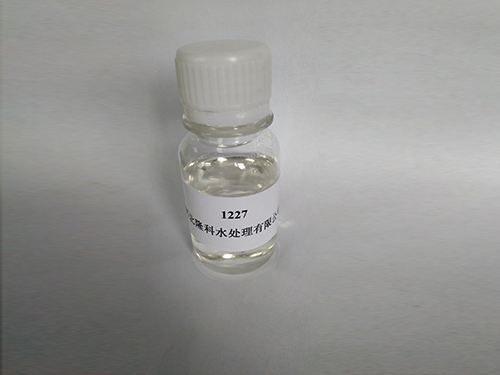Effective Scale Inhibitors for Cooling Tower Performance and Maintenance Solutions
The Importance of Cooling Tower Scale Inhibitors
Cooling towers are integral components in many industrial processes, providing essential heat dissipation for machinery, power generation, and chemical production. However, the efficiency of these systems can be severely compromised by scale formation. Scale buildup within cooling towers can lead to decreased heat transfer efficiency, increased operational costs, and potential system failures. This is where cooling tower scale inhibitors come into play, helping to maintain optimal performance and longevity of cooling tower systems.
Understanding Scale Formation
Scale is primarily composed of mineral deposits that precipitate out of the water, particularly when water is subjected to heat and evaporation. Common minerals that contribute to scale include calcium carbonate, calcium sulfate, and magnesium silicate. As water evaporates, these minerals become concentrated, leading to crystallization and the formation of hard deposits on the surface of pipes, heat exchangers, and other components of the cooling tower. This not only restricts the flow of water, reducing system efficiency, but also increases energy consumption as pumps work harder to circulate water.
The Role of Scale Inhibitors
Cooling tower scale inhibitors are chemical additives designed to prevent the formation and deposition of scale. These inhibitors work through various mechanisms, including threshold inhibition, crystal modification, and dispersion.
1. Threshold Inhibition This mechanism involves lowering the concentration of scale-forming ions required for nucleation, effectively delaying the onset of crystallization.
2. Crystal Modification Some inhibitors change the shape and growth pattern of crystals, preventing them from adhering to surfaces and allowing them to remain suspended in the water.
3. Dispersion Finally, dispersants keep scale particles in a suspended state, preventing them from agglomerating and forming larger deposits.
By using these inhibitors, facilities can significantly reduce maintenance costs and improve the reliability of their cooling systems.
Types of Cooling Tower Scale Inhibitors
cooling tower scale inhibitor

There are various types of scale inhibitors employed in cooling towers. They can be broadly categorized into organic and inorganic inhibitors.
- Organic Inhibitors These include polyacrylic acids, phosphonates, and carboxylate copolymers. They are typically more effective at low concentrations and are favored for their ability to prevent both crystal growth and deposition.
- Inorganic Inhibitors These are often used as a secondary approach and include compounds such as phosphates and silicates. While effective, they can have limitations regarding the environmental impact and regulatory constraints.
The choice of a specific scale inhibitor depends on the water chemistry, the operational conditions of the cooling tower, and environmental considerations.
Environmental Impact of Scale Inhibitors
The application of cooling tower scale inhibitors is not without challenges. Some chemicals may pose environmental risks, particularly if they are not managed properly. Regulatory frameworks are in place in many regions to ensure that the use of chemical additives in cooling systems complies with safety and environmental standards. Thus, choosing environmentally friendly inhibitors can mitigate risks while still achieving effective scale control.
Benefits of Using Scale Inhibitors
The implementation of cooling tower scale inhibitors presents numerous advantages. Firstly, they prolong the lifespan of equipment by minimizing scale-related wear and tear. Secondly, they enhance energy efficiency, which can lead to significant cost savings. In many cases, reducing scale buildup can lead to improved heat transfer, directly translating to lower operating expenses.
Moreover, the use of scale inhibitors contributes to water conservation efforts by allowing the circulation of water for longer periods without the need for frequent blowdowns. This decreases the volume of wastewater and reduces the demand for freshwater, supporting sustainability initiatives.
Conclusion
In conclusion, cooling tower scale inhibitors are essential tools for maintaining the efficiency and longevity of cooling tower systems. By preventing scale formation, they not only safeguard the mechanical integrity of the equipment but also contribute to significant cost savings and environmental benefits. As industries continue to seek ways to optimize performance and sustainability, the role of scale inhibitors will undoubtedly become more critical in the management of cooling tower operations.
-
Pbtc Scale InhibitorPBTC: A Scale Protector for Industrial Water TreatmentNewsAug.05,2025
-
Organic Phosphonate: An Efficient Defender in the Field of Scale InhibitionNewsAug.05,2025
-
Hydrolyzed Polymaleic Anhydride: Green Pioneer in Scale Inhibition FieldNewsAug.05,2025
-
PAPEMP Polyamino Polyether Methylene Phosphonic Acid For SaleNewsAug.05,2025
-
Flocculant Water Treatment: A Pioneer in Purification in the Field of Water TreatmentNewsAug.05,2025
-
Benzyl Isothiazolinone: An Efficient and Broad-Spectrum Antibacterial Protective GuardNewsAug.05,2025





